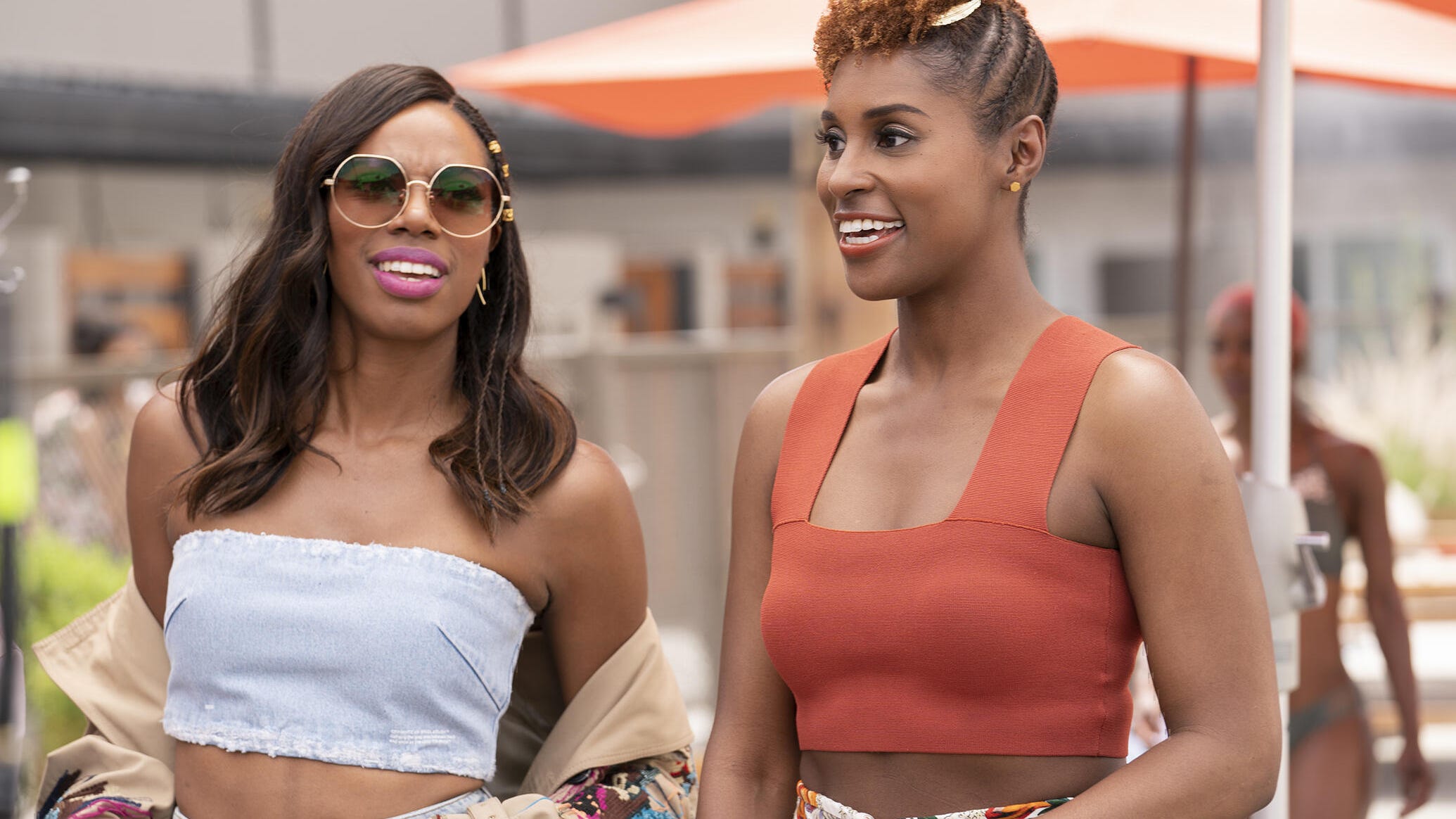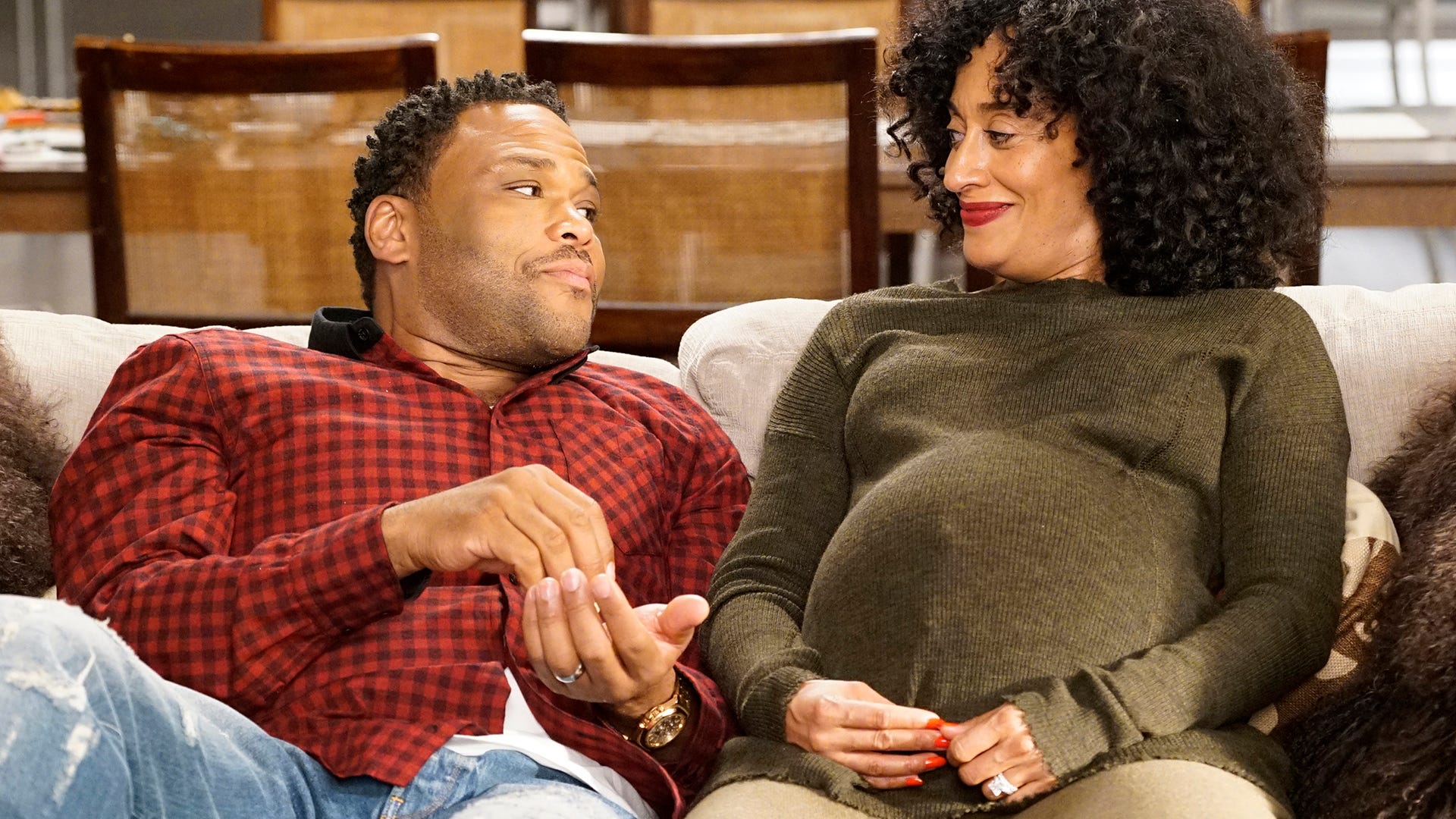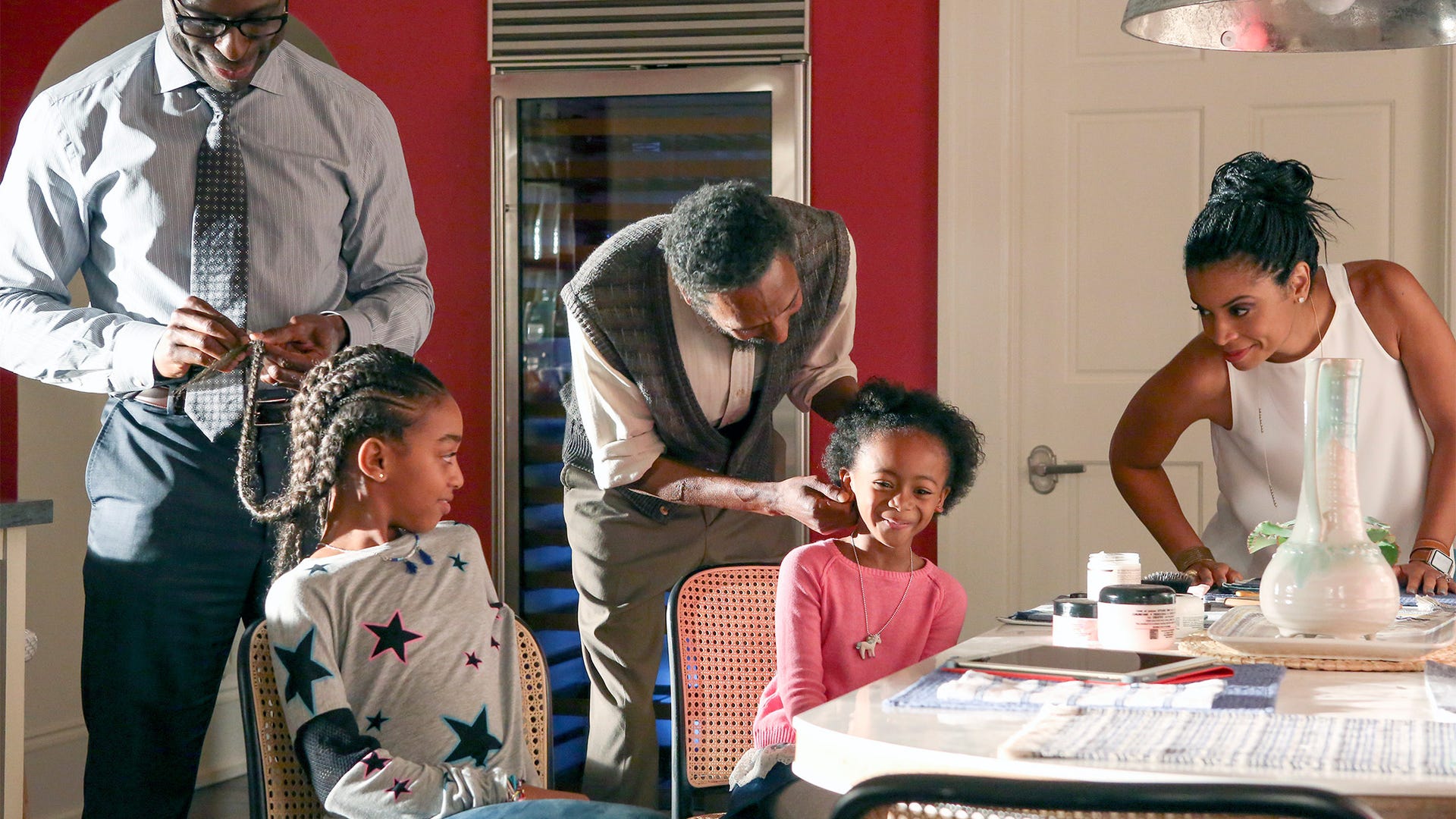
TV Is in the Midst of a Black Hair Revolution We Can't Ignore
This Is Us' Beth, black-ish's Rainbow, Insecure's Issa and more are normalizing natural hairstyles on TV... and it's about time
I will never forget the moving 2014 episode of ABC's How To Get Away With Murderwhere powerhouse attorney Annalise Keating (Viola Davis) removed her wig while preparing for bed. In this rare moment of vulnerability, Annalise gave us a glimpse of the world-weary person beneath the perfectly manicured facade, one that was complete with hair textures white people in white-collar professions understand. I gasped when she took the wig off. As a viewer, I was riveted by this intimate portrait. As a black woman, I was thankful for the authentic portrayal, yet saddened that she was visibly troubled. Annalise represented the decades-, perhaps even centuries-long struggle of black women around the world: When will my talents matter more than what's growing out of my head?
It's a struggle that I went through recently myself. Growing up, my Saturday morning routine involved consuming cereal and cartoons and enduring the scorching hot pressing comb that tamed my natural hair. Two years ago, however, I cut off my straightened hair to go natural, only to receive disparaging remarks from family. I don't know why you had to go out and cut off all of that beautiful hair! Others took more subtle jabs posed as a question. Don't you miss your long hair?
Their words echoed our culture's more clearly: the only thing worse than a black woman with natural hair is a black woman with short natural hair.
All of my closest friends went through similar negotiations of their own: When my best friend interviewed for medical school, for example, she straightened her hair because she felt it would help her to be taken seriously, even though she had graduated from a leading college.
Just this month, the New York City Commission on Human Rights finally banned discrimination based on natural hair in work, school and public spaces. In 2016, however, an employer legally rescinded a job offer to a black woman who refused to cut her locs. In 2017, a preparatory academy in Montverde, Florida, asked a black teenage girl to change her natural hair because it violated the school's dress code. Similarly, in 2018, a middle school student in Gretna, Louisiana was removed from school due to her braided extensions.
The pressure many black women and girls feel to alter our natural hair and protective styles isn't imagined; it has real-world consequences that affect our education, finances, social standing and ability to function unrestricted as contributing members of society. This social pressure means, for some black women, that wearing natural hair, short or long, requires a level of public vulnerability they are willing neither to endure nor entertain. This is why Annalise wears a wig. It is her access key to the larger professional world as much as it is her protection against it.
Thankfully, only a few channels (or one streaming site) away, we can find quite a few black women pushing back on what's acceptable in professional and personal spheres, and these actresses are leading the natural hair revolution on-screen.

Tracee Ellis Ross' character Rainbow Johnson on the hit ABC show black-ish is a prime(time) example. In a single episode, Bow may don three or four different natural hairdos. Here, Bow strategically models #WhatADoctorLooksLike and shows how black doctors' hair can shape-shift.
According to Bow, black doctors sometimes flaunt voluminous curls and sometimes rock afro puffs -- one, two, or four -- to simulate a faux mohawk. According to Bow, yes, sometimes black doctors wear a simple high or low bun, but they also floss the bamboo earrings LL Cool Jay rapped about in the 1990 hit "Around the Way Girl." Bow assures us black doctors don't mind being considered around the way girls. Bow's hairstyles matter because they counter the dominant cultural narrative about the non-professionalism of natural black hair.
Similarly on NBC's This Is Us, black women rock their natural hair and protective styles on camera. One week, America watches Beth Pearson (Susan Kelechi Watson) sport a regal pompadour with either afro puffs or Bantu knots, depending on her mood. The next, she might whip out Senegalese twists if she doesn't want to fuss with her hair. Beth is not alone; her and Randall's two daughters and their adopted daughter, Déjà (Lyric Ross) all flaunt natural coils that differ in length and texture.

While Beth Pearson and Rainbow Johnson are characters who are pushing the envelope of what successful, professional black women can look like -- particularly when they are also essentially in charge of running their families -- wearing natural hair is a different kind of resistance for other women who don't have it all... like the messy, complex Issa Dee (Issa Rae) on HBO's Insecure.
On Insecure, we get to watch Issa change hairstyles as if she were hosting a three-hour awards show: a braided updo with twist-out bangs for the first hour, cornrows with afro puffs at the bottom for the second hour, and an elegant afro puff to finish off the broadcast. Each hairstyle is a reflection of the unparalleled versatility of black hair: It can stand stiffly in attention one moment, coil together in three-inch clumps the next if wet, and finally unfurl seven inches long if stretched.
But unlike Bow and Beth, whose socioeconomic statures turn their hair choices into sociopolitical statements, Issa's myriad of gorgeous styles clearly reflect another part of the cultural landscape. For Bow and Beth, their hair is a flex, a sign that their lives -- despite many ups and downs -- are as together as their follicles. For Issa, her hair is one of only a few parts of her life she has control over.
Issa is a nonprofit counselor, a Lyft driver, an apartment super with no idea how to fix things. She has people she'd die for but sometimes doesn't like. We watch her give motivational messages to students in one scene and heart-warming speeches to potential financial donors in another, and then we witness her spit rhymes in her bathroom mirror later that evening. Amidst all these wildly different, wildly versatile facets, is a portrait of a woman who has no plan -- or even necessarily desire -- to get to the top, but is damn sure gonna look good wherever she ends up. For Issa, her hair is simply, purely self-expression, as mercurial her moods, financial situation and flirtations. On TV, that's a privilege historically extended to everyone except black women.

Thankfully today, there are plenty of role models on screen claiming that privilege as a right. Actress Aisha Hinds, who stars in FOX's 9-1-1, has been rocking a bald fade for what seems like forever. Grown-ish's Yara Shahidi and singing duo Chloe x Halle, whose performance in their loc updos at the recent Grammy Awards mesmerized viewers, are great hair role models as well. Let's not forget, too, First Officer Michael Burnham (Sonequa Martin-Green) ofStar Trek: Discovery, whose natural hair warps into the future weekly.
The intentional choices of these actresses and others like them, coupled with movies like Netflix's Nappily Ever After, continue to force a national dialogue around the topic and normalize on TV what should have always been normal on TV. They also reflect a growing trend: Statistics show that perm product sales continue to plummet as more black women embrace their natural hair.
Maybe TV shows have increased acceptance of natural hair, or maybe they are simply reflecting changing cultural norms. It's hard to know exactly, but I suspect that we will continue to see more natural black hair in our offices, boardrooms, schools and TV screens. One thing I know for sure is that this revolution will be televised.